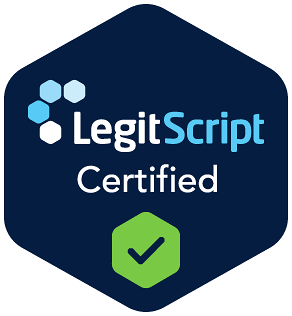KETAMINE RESEARCH
New Pathways Ketamine Infusion Research Portal
At New Pathways Clinic, we believe in empowering patients with easy access to relevant research that helps to guide our protocols and philosophies. We understand that most individuals have not heard of ketamine infusions as a treatment option for psychiatric conditions and may wish to research Ketamine in-depth themselves.
We are happy to provide a comprehensive list of links to relevant studies from some of the most important academic institutions and journals in the United States and the world. We will keep this list updated, as research on ketamine is growing at an exciting pace due to its amazing results.
Our meta-analysis suggests that single administrations of ketamine are efficacious in the rapid treatment of unipolar and bipolar depression.
Ketamine for Treatment Resistant Depression
“Indeed, ketamine’s remarkable rapid, robust, and sustained antidepressant effects are considered to be ‘arguably the most important discovery in half a century’ for depression research” (Harvard Medical School) (Yale School of Medicine)
“Our meta-analysis suggests that single administrations of ketamine are efficacious in the rapid treatment of unipolar and bipolar depression.” (Psychological Medicine)
“Ketamine has a robust and rapid effect on depression, which was seen immediately after the administration of ketamine and sustained at the end of 1 month.” (Central Institute of Psychiatry)
“The findings reported herein support the rapid and cumulative effects of single and repeated ketamine infusions on suicidal thoughts in individuals with TRD [Treatment Resistant Depression], even for those with high pre-treatment SI [Suicidal Ideation] severity.” (Royal Institute of Mental Health Research)
More Research on Ketamine
“A 12-month naturalistic observation of three patients receiving repeat intravenous ketamine infusions for their treatment-resistant depression” (Journal of Affective Disorders)
“Comparing Electroconvulsive Therapy and Ketamine Treatment for Adults with Major Depression That Has Not Responded to Antidepressant Medicines“ (PCORI)
Ketamine-mediated synaptic plasticity changes appear to occur within a matter of hours after ketamine administration
How Does Ketamine Affect the Brain?
“Though convergence onto a specific brain area is elusive in depression, ketamine affects different areas of the brain in various ways, which may contribute to overall mood improvements.” (Harvard Medical School)
“Blockade of NMDA receptors by ketamine increases the number and function of synapses” (Yale School of Medicine)
“Ketamine-mediated synaptic plasticity changes appear to occur within a matter of hours after ketamine administration” (Mt. Sinai Hospital)
“A single subanesthetic dose infusion of the noncompetitive N-methyl-D-aspartate (NMDA) receptor antagonist ketamine has been shown to have rapid and potent antidepressant effects in treatment-resistant Major Depressive Disorder and Bipolar Disorder Depression” (National Institute of Mental Health)
“This study provides the first replication of the ability of ketamine to normalize depression-related prefrontal dysconnectivity” (Yale School of Medicine)
Ketamine infusions were associated with significant and rapid reduction in PTSD symptom severity, compared with midazolam
Ketamine for PTSD
“Ketamine infusion was associated with significant and rapid reduction in PTSD symptom severity, compared with midazolam” (Mount Sinai Hospital)
“Ketamine, an NMDA receptor antagonist, has recently received attention as a possible novel pharmacologic agent for PTSD given the mounting evidence of its rapid antidepressant effects in mood disorders and its robust effect on neuroplasticity” (Yale School of Medicine)
“The purpose of this study is to test the safety and efficacy of repeated doses of ketamine as compared to placebo, in reducing symptoms of Posttraumatic Stress Disorder (PTSD) in an active duty military and Veteran population” (VA Office of Research and Development)
Participants receiving ketamine first showed significant rapid reduction in obsessions during the infusion, that persisted until 1-week post-infusion, compared with participants receiving placebo first
Ketamine for Anxiety Disorders
“Patients reported marked improvements in functionality and in their personal lives. Maintenance ketamine may be a therapeutic alternative for patients with treatment refractory Generalized and Social Anxiety Disorder” (Health Research Council of New Zealand)
“Participants receiving ketamine first showed significant rapid reduction in obsessions during the infusion that persisted until 1-week post-infusion compared with participants receiving placebo first” (Columbia University)
“Ketamine’s antidepressant and anti-anxiety effects are presumed to occur through activating synaptic plasticity by increasing brain-derived neurotrophic factor translation and secretion” (Maryland School of Medicine)
“… This observation suggests that IV ketamine could be considered a treatment alternative for adults with Bipolar Disorder”
Ketamine for Bipolar Disorder
“A study of patients with anxious and non-anxious bipolar depression found that both anxious and non-anxious patients with bipolar depression had significant antidepressant responses to ketamine” (National Institute of Mental Health)
“Our preliminary results suggest that IV ketamine is effective in rapidly treating anxiety irritability and suicidal ideation in adults with treatment-resistant mood disorders. This observation suggests that IV ketamine could be considered a treatment alternative for adults with Bipolar Disorder” (Bipolar Disorders Journal)
“Ketamine has a robust and rapid effect on depression, which was seen immediately after the administration of ketamine and sustained at the end of 1 month.” (Central Institute of Psychiatry)
“Ketamine in Bipolar Disorder- A Review” (Medical University of Gdańsk)
In 17 patients with migraine headache, significant improvements in pain were observed compared with placebo for acute pain (<1 hour) and for at least 15 days in 12 subjects following administration of subcutaneous ketamine
Ketamine for Migraines
“17 patients with migraine headache, significant improvements in pain were observed compared with placebo for acute pain (<1 hour) and for at least 15 days in 12 subjects following administration of subcutaneous ketamine” (International Journal of Clinical Pharmacology Research)
“The simplest and most elegant explanation proposed for ketamine’s chronic pain–relieving properties is that it ‘resets the CNS,’ in essence reversing the deleterious effects of central sensitization by virtue of its NMDA-receptor antagonistic effects” (Journal of Chronic and Interventional Pain)
“IV ketamine was safely administered in the hospital setting to patients with refractory chronic migraine. Treatment was associated with short term improvement in pain severity in 6 of 6 patients with refractory chronic migraine. (Journal of Headache and Pain)

Why Choose New Pathways Clinic for Your Ketamine Infusions?
New Pathways’ teams has over a decade of experience treating psychiatric conditions with Ketamine infusions. With a 70% success rate in significant reduction of depression and other symptoms, Ketamine infusions provide new hope for relief for those suffering from oppressive symptoms.
Do medications feel like they are merely treating surface level symptoms?
Have pills and counseling left you feeling like no treatment works for you?
Schedule a free phone consultation with the experienced team at New Pathways Clinic and see if Ketamine treatments could help you.
STILL HAVE QUESTIONS?
Check out the FAQ’s or learn more about us here.
Also, feel free to contact us anytime with any questions you may have.


